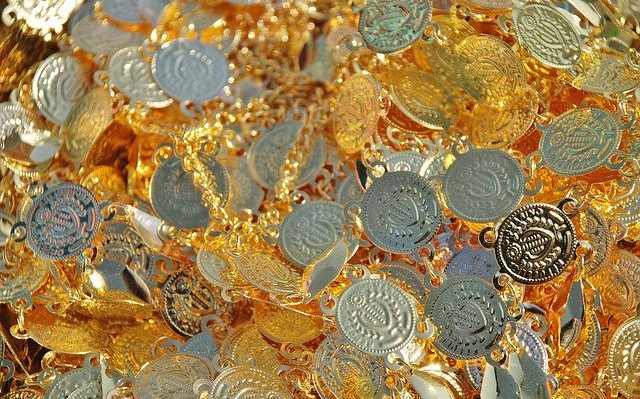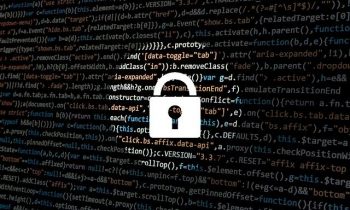
1. Holding Physical Assets can Make You a Target
There are many positive aspects of keeping valuables such as your coin and precious metals collection at home, such as liquidity, accessibility and even the joy of having your collection handy to enjoy. I’m guessing like most collectors, you like to pull out your stash from time to time and admire the stacks of shiny metal. If this is the case, and you catalog your collection using a coin collecting software, then you should consider the issue of privacy when choosing your software for coin collecting.
It’s no surprise that having physical assets like your coin and precious metals collection in your home could make you a target among home intruders, but there are several other cases where you may be exposing yourself. Service technicians have access to your home that wouldn’t normally be granted to strangers. Parties sometimes bring people into your home who feel very comfortable in your private space, even if you don’t actually know them that well. In some cases because of word-of-mouth, people know about your stack without you having told them yourself.
Think about how you would protect yourself in these situations. You would most likely secure the valuables physically in something like a safe. You would hide these valuables out of plain site and away from high traffic areas. Lastly, you would not advertise your stash to the world.
You should take this same approach when using a software for coin collectors. Your coin collecting software is a digital representation of your physical stack, so protect it accordingly with a secure coin collecting software.
2. Secure Software Helps Stop Unwanted Solicitation
Besides exposing the physical location of your stack, another reason to consider privacy when buying a software for coin collecting is that your knowledge and interest in coins and precious metals may result in receiving countless solicitations from metals dealers or brokers, many of whom are unscrupulous. There are many bad actors in the coin/metals circles selling coins that are graded incorrectly, damaged, or worse; selling coins that are complete fakes.
As a general rule, any merchant that you end up buying precious metals from should be someone that you sought out yourself or were referred to by a trusted source, not someone that approaches you, especially from data they may have obtained in a questionable manner. One way to do this is to only use a coin collecting software that will not share your personal data with vendors.
3. Privacy for Precious Metals Sales Is Important
Many of your purchases probably come through large online vendors, and that’s fine, but those vendors keep extensive details of each purchase and even send sales data to the IRS in some cases. I personally love Apmex, but it’s a little unnerving that they have a list of all my purchases ever made stored in their database. I’m not sure who exactly has access to that data.
Now I’m not advocating doing anything illegal, but does the watchful eye of the government really need to see every coin/precious metals transaction you make? Small private coin sales allow you instant acquisition or liquidity. This is honestly the beauty of having a valuable collection at your fingertips. However, if you store the details of these transactions in a coin collecting software that is not secure, then you have exposed yourself and destroyed your right to privacy. This is another great reason to do your homework on a secure software for coin collectors.
4. Prevent Your Name From Ending Up on a List
Before you accuse me of having my tinfoil hat on too tight, let me explain. Data is traveling at an unprecedented rate in this day and age. That is not a surprise. What may be a surprise to you though is the sophistication of algorithms that aggregate and distribute data/content on the web. Social media is a good example of this. Facebook for example routinely makes decisions on what data to show you based on other interests you have, which on the surface may seem unrelated. Yet algorithms have identified that when people follow one of the topics, they regularly follow the other as well.
You may ask what the harm is in this, and you may determine that for you there is none. However as for myself, I don’t want assumptions about me being made online. You may think these assumptions only apply to innocuous topics like hobbies, but data is big business these days. You may unknowingly be getting lumped together politically, religiously, or otherwise with others based on your love of shiny metals. I don’t know about you, but that’s not cool with me!
5. Prevent Compromising Your Remote Storage Information
I am a strong advocate for storing your coin collection at home or another private location, but some people find comfort in having their physical precious metals stored at a “secure” remote gold storage facility. Others still skip the physical bullion all together and invest in gold or silver ETFs. In either case, people who use these methods love the convenience of logging into their profile to check on their remote stack.
The danger here is that bad actors don’t even have to steal anything from you in person. All they need is to breach your data in order to gain control of your account. That is why I always recommend keeping your coin collection at home and managing your collection with a secure coin collecting software, because it eliminates the need for credentials that can be compromised over the internet.
6. Government Confiscation Can’t Be Ruled Out
Again with the conspiracy theory? No, this one is just a historical fact. In 1933 President Roosevelt issued Executive Order 6102, requiring all U.S. citizens to turn in their gold coins and bullion to the Federal Reserve in exchange for $20.67 per ounce. This order was backed by the threat of ten years in prison. Fast forward to 2020, and the U.S. Federal Reserve has pumped $3 trillion in new money into the economy, in a single calendar year!
Whether or not you believe this strategy will ultimately result in out-of-control inflation, it is clear to see that real assets are going to become more valuable than ever. Unbacked paper currencies around the world are ultimately losing buying power, while real wealth is being stashed in hard assets such as precious metals. If the government ultimately decides it needs hard assets to back the currency, do you really want all of your coin collecting info out on the web?
7. Secure Coin Software Protects Your Stack at Home
All of the reasons listed in this article add up to one fact; investing in a coin collecting software that is both private and secure is not just advisable, it is the prudent decision. Take the same precautions that you would take with your physical stack when it comes to information about your coin collection or precious metals collection online. Then take comfort in knowing you haven’t exposed any private information about your investments or interests.
Jacob
Latest posts by Jacob (see all)
- Why I Ditched Google for PrivacyWall and You Should Too - April 13, 2021
- 7 Reasons Why Privacy is Critical in Coin Collecting Software - September 22, 2020
- Andrew Anastasiou Launches LegionPay - August 13, 2020






